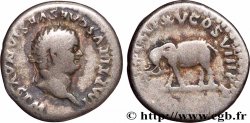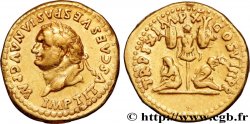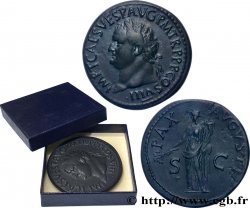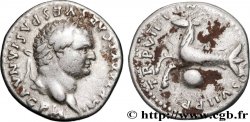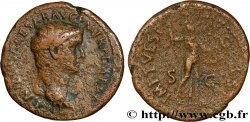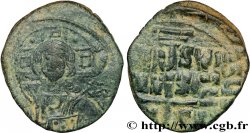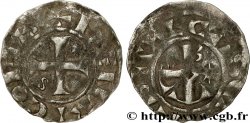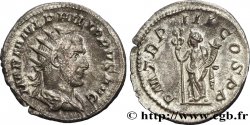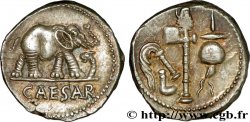v27_0520 - TITO Denier
MONNAIES 27 (2006)
Начальная цена : 380.00 €
Назначить цену : 650.00 €
Цена реализации : 380.00 €
Количество ставок : 1
Максимальная предлагаемая цена : 385.00 €
Начальная цена : 380.00 €
Назначить цену : 650.00 €
Цена реализации : 380.00 €
Количество ставок : 1
Максимальная предлагаемая цена : 385.00 €
Тип Denier
Дата: 80
Монетный двор / Город: Roma
Металл: silver
Проба: 900 ‰
Диаметр: 18,5 mm
Ориентация осей монеты: 6 h.
Вес: 3,39 g.
Комментарии о состоянии
Très beau portrait sur un flan un peu court, mais bien centré des deux côtés. Revers de haut relief. Une patine grise superficielle avec des reflets dorés recouvre l’ensemble de la pièce
Ссылки в каталоге: :
Лицевая сторона
Аверс: легенда: IMP TITVS CAES VESPASIAN AVG P M..
Аверс: описание: Tête laurée de Titus à droite (O*).
Аверс: перевод: “Imperator Titus Cæsar Vespasianus Augustus Pontifex Maximus”, (L’empereur Titus césar Vespasien auguste grand pontife).
Обратная сторона
Реверс: легенда: TR P IX IMP XV COS VIII P P.
Реверс: Описание: Trône à dossier triangulaire.
Реверс: перевод: “Tribunicia Potestate nonum Imperator quintum decimum Consul octavum Pater Patriæ”, (Revêtu de la neuvième puissance tribunitienne de la quinzième salutation impériale consul pour la huitième fois père de la patrie).
Комментарий
Pour ce type, il y a deux types de trône, l’un arrondi que l’on rencontre pour l’aureus (BN/R. 46) et le denier (BN/R. 47, 48 et 51), l’autre triangulaire signalé pour le denier (BN/R. 49-50) comme sur notre exemplaire. Michel Prieur fait remarquer qu’un tissu est posé sur le trône, il pourrait s’agir du paludamentum (manteau de pourpre rouge du général victorieux, puis de l’empereur).
For this type, there are two types of throne, one rounded which is found for the aureus (BN/R. 46) and the denarius (BN/R. 47, 48 and 51), the other triangular reported for the denarius (BN/R. 49-50) as on our example. Michel Prieur points out that a cloth is placed on the throne, it could be the paludamentum (red purple cloak of the victorious general, then of the emperor)
For this type, there are two types of throne, one rounded which is found for the aureus (BN/R. 46) and the denarius (BN/R. 47, 48 and 51), the other triangular reported for the denarius (BN/R. 49-50) as on our example. Michel Prieur points out that a cloth is placed on the throne, it could be the paludamentum (red purple cloak of the victorious general, then of the emperor)








 Cообщить об ошибке
Cообщить об ошибке Распечатать страницу
Распечатать страницу Отправить мой выбор
Отправить мой выбор Задать вопрос
Задать вопрос Consign / sell
Consign / sell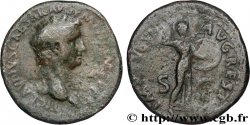
 Информация
Информация